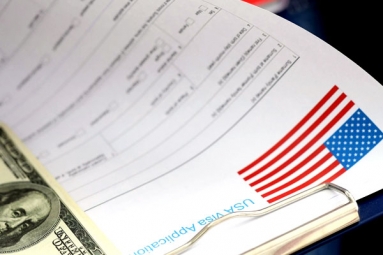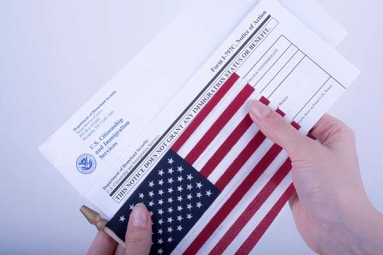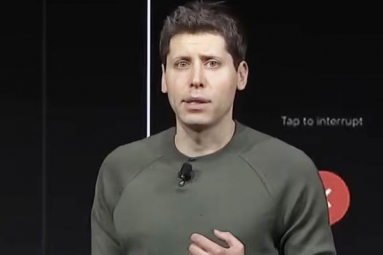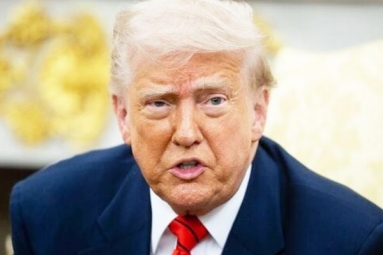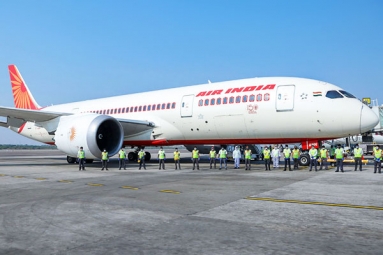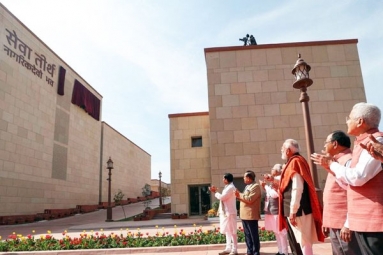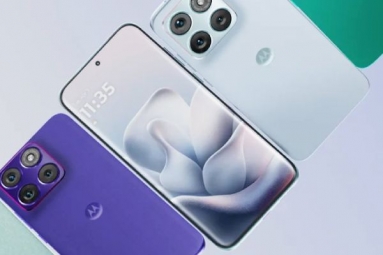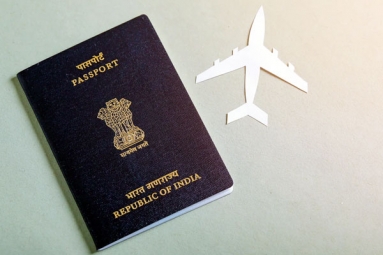
(Image source from: Strand of Silk)
A big fat Indian wedding consistently persuades the United States consulate officials in India that the marriage was genuine and the bride was not soliciting for a U.S. green card.
Kavita Dixit (name changed), whose wedding took place on a much smaller scale as a matter of choice, found herself facing unusual questions.
Spousal relationship to a permanent resident in the U.S., be it a green card holder or a U.S citizen, does not signify that the India-based spouse can board the next flight. There is a waiting period encompassed and the initial step is tackling the interview.
According to immigration attorneys, consulate officials are well known with the idea of an arranged marriage and for the most part, sensitized to the challenges that may encircle an inter-caste or inter-religious marriage. But it is best for the bride to be prepared for any questions that may pop up.
"The consulate official double-checks by looking at the wedding album and other evidence such as bookings related to the marriage venue or honeymoon," says Cyrus Mehta, a New York-based immigration lawyer and founder of a law firm.
If the wedding ceremony was celebrated with the pomp associated with a traditional marriage and was registered, there is normally no issue. "With respect to Hindu marriages, the consulate looks to see whether the customary marriage rituals such as 'saptapadi' were adhered to, although a Hindu marriage can be legally valid even in the absence of the couple taking these seven steps around a fire. If the bona fides of a marriage are suspect, then discreet inquiries may be conducted - for example, by asking the neighbors," says Mehta.
Rajiv S Khanna, managing attorney at Immigration.com says, "In a recent case, the consulate official was highly suspicious as the traditional pomp was missing and the marriage was attended by only around 10 people. Once it was explained that the marriage was an inter-caste one, which was vehemently opposed by families from both sides, which resulted in the smaller number of invitees and a low-key celebration, the process was smooth sailing."
"As the couple has not yet started living together, the questions also center around how often they stay in touch and their future plans," adds Khanna.
David Nachman, managing attorney at NPZ Law Group points out: "US consulate officers are also trained in the myriad nuances of Indian cultures, such as the protocol and pressures for individuals to marry within their castes, religions and even geographies. To illustrate, a case involving a Punjabi in India marrying a Gujarati U.S. citizen is more likely to result in an administrative processing inquiry."
"The Fraud Detection and National Security (FDNS) agency have recommended that immigration officers look at social websites to check if the couple is in a valid marital relationship. We caution our clients to check all their social media accounts and update or sanitize them," says Snehal Batra, managing attorney at NPZ Law Group.
It is also achievable for the wife to already be in the U.S., say on an H-1B work visa. Post marriage to a green card holder or U.S. citizen, she can apply for a green card (known as adjustment of status), but the interview procedure is more strict.
"Officials of the U.S. Citizenship and Immigration Services (USCIS) conduct separate interviews - referred to as the Stokes interview, to make sure the couple is living together and corroborate the answers. The questions can range from where they met, the proposal itself, foods they like, who does household chores, sleeping habits, hobbies, toiletries used et all" says Khanna.
"The couple has the right to have an attorney present throughout separate interviews. In one such interview, the husband was asked: 'How do you wake up in the morning?' He responded that he used an alarm clock. The wife who was separately interviewed said a cell phone was used. I was able to clarify that the alarm was set on the cellphone, else this client's application would have been denied," illustrates Batra.
Setting status to a green card while on a short-term visit to meet one's husband can also be difficult. "Her entry to the U.S. can be treated as fraudulent with the main intent of converting to a green card - consequences can even be a permanent bar," cautions Khanna.
-Sowmya Sangam



